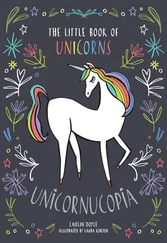Rob Doyle - This is the Ritual
Здесь есть возможность читать онлайн «Rob Doyle - This is the Ritual» весь текст электронной книги совершенно бесплатно (целиком полную версию без сокращений). В некоторых случаях можно слушать аудио, скачать через торрент в формате fb2 и присутствует краткое содержание. Год выпуска: 2016, Издательство: Bloomsbury Publishing, Жанр: Современная проза, на английском языке. Описание произведения, (предисловие) а так же отзывы посетителей доступны на портале библиотеки ЛибКат.
- Название:This is the Ritual
- Автор:
- Издательство:Bloomsbury Publishing
- Жанр:
- Год:2016
- ISBN:нет данных
- Рейтинг книги:5 / 5. Голосов: 1
-
Избранное:Добавить в избранное
- Отзывы:
-
Ваша оценка:
- 100
- 1
- 2
- 3
- 4
- 5
This is the Ritual: краткое содержание, описание и аннотация
Предлагаем к чтению аннотацию, описание, краткое содержание или предисловие (зависит от того, что написал сам автор книги «This is the Ritual»). Если вы не нашли необходимую информацию о книге — напишите в комментариях, мы постараемся отыскать её.
This is the Ritual — читать онлайн бесплатно полную книгу (весь текст) целиком
Ниже представлен текст книги, разбитый по страницам. Система сохранения места последней прочитанной страницы, позволяет с удобством читать онлайн бесплатно книгу «This is the Ritual», без необходимости каждый раз заново искать на чём Вы остановились. Поставьте закладку, и сможете в любой момент перейти на страницу, на которой закончили чтение.
Интервал:
Закладка:
She sat out on the sitting-room balcony with the lights off, thinking about what had happened. Now and then she could hear noises coming through the wall from the bedroom. Across the city, a plane was flying low and she watched till it vanished beneath the skyline. She made herself a cup of camomile tea. Soon it was dawn. Alicia showered and got back into her clothes, which were pungent with chemical sweat. Then she quietly opened the bedroom door and looked at the couple — they were naked and sleeping like infants, hand in hand on the strewn and spotted bedding. Alicia closed the door and left the apartment. She hailed a taxi on the awakening street and went home.
In October, Alicia received an email from her ex-boyfriend — the first time he had contacted her since the separation. He said he was sorry, profoundly sorry; he said he had been looking deeply into himself and at the pain he had caused, not only to her but throughout his life to those who loved him, and was ready to change. He said he wanted her back. He said he fully understood why she had left, and would never hold it against her, but now things would be different. He said he was ready to be a father, if that was what she wanted.
For days after reading the email, Alicia’s emotions were in turmoil. Suddenly it seemed so appealing: to get out of Barcelona, this city she had landed in with no purpose other than to be away from Dublin; to go back to the life she’d had before, but altered now, with greater power on her side. Then the weekend came, and she met Halid for a drink. They drank more than usual, laughed easily, and talked more intimately than ever — lacking any sense of consequence, Alicia felt she could be as honest as she liked with Halid. She told him about her ex, his affairs and one-night stands, how she no longer believed there was one person with whom you ought to share your life, but perhaps many, or no one in particular.
‘Were you ever unfaithful to your boyfriend?’ Halid asked.
Alicia trailed a painted fingernail down the side of her cocktail glass. ‘Once,’ she said.
‘And did he know about it?’
‘No. I never told him, even after I found out all he had done on me. Of course I considered telling him out of revenge, but I realised I just didn’t want to. It was with one of his best friends, years ago now. It was just one night.’
‘And do you regret it?’ Halid asked.
‘No,’ she said. ‘Not then, really, and definitely not now.’
They took a taxi to Halid’s place. At a certain point in the night, her brow mussed with sweat, Alicia leaned her face in close to Halid’s. She said to him, ‘There’s a thing I’ve always fantasised about doing, about a man doing to me, but I’ve always been too embarrassed to tell anyone.’
Halid grinned. ‘Tell me,’ he said.
The following morning, for the first time, Alicia felt tempted to stay for breakfast, maybe to go for a coffee and read the papers with Halid, then walk with him in the park or to the weekend market. She resisted the temptation. When she got back to her apartment, she deleted the email from her ex: she would stay in Barcelona for another year, maybe longer, maybe a lifetime. In the middle of the following week, she called Halid and explained that they would not be seeing one another again. Halid sounded deflated, but said he understood.
Not long after that, Alicia texted me to say she wanted to be a subject in my ‘sleepy project’, as she put it. I spent a night at her apartment on the Calle de la Madera. As usual, I brought along a sleeping bag and pillow, to lay out on the floor in case I got tired. However, Alicia insisted that I should lie in the bed with her instead. By five a.m., I had taken almost two hundred photos. Alicia had shifted only once in the course of the night, turning from her side to lie face-up. Careful not to disturb the microphones that were directed at various parts of her body, I gently lifted the covers and lay down beside her. The bed was not large, and I inadvertently brushed her side with my hand. The warmth of her body triggered memories of my sister, from years ago. I imagined what would happen if Alicia were to wake and turn to me, or reach out her hand for mine beneath the covers. I found my heart was beating violently.
Mexico Drift
The last time I saw my friend Julian was the night we went to see Bret Easton Ellis give a talk at the London Literature Festival. Most of what follows I learned from a long, discomfiting email he sent me from Guatemala, out of the blue, more than a year later. I received that email seven months ago; I’ve heard nothing from him since.
The Bret Easton Ellis talk took place on a drizzly autumn evening two nights after Julian’s twenty-ninth birthday, which meant we were both still a little fragile from the effects of all we’d consumed at the riotous party that had doubled as Julian’s big send-off (he had quit teaching at the language school where I’d met him and booked a one-way flight to Mexico).
After the talk, over glasses of Leffe in a pub across the river from the South Bank, we discussed why seeing Ellis had been so dispiriting.
‘He’s the dead fucking end,’ Julian said.
His voice was strained. He was drinking quickly to become interested in where he was.
‘You know what I mean? Being totally nihilistic is exciting when you’re younger, you can get away with it then. There’s still pleasure to be had in the destructive work. You haven’t yet had to live in the ruins. Most people who’re like that seem to wise up and realise it’s like this fire they’ve set in themselves, and if they don’t put it out by a certain age, they’ll be consumed. All that’ll be left are the ashes. That’s the impression Ellis gave me: a man of ashes. He showed too keen an interest in the fucking void, and eventually it started taking an interest in him. He should’ve killed himself twenty years ago.’
I drank my beer as Julian peered into his glass. Memories reeled through my mind: Julian as the younger punk-intellectual, at war with everything, but winning the war and exhilarated by the fight; the acts of vandalism, all the fire-gutted cars and shattered McDonald’s windows. And later, the deepening sullenness, the first flirtations with far-right ideologies, the sneering disdain for younger advocates of the same radical leftism he had once espoused.
We got mildly drunk that night, but Julian never shrugged off his lethargy. We said goodbye at Leicester Square tube station and I took a bus home through the rain. Less than a week later, Julian flew to Mexico City, alone.
For his first few days there, he saw no one. He drank and wandered the streets, the city a choking carnival of noise and pollution. He hooked up with some punk contacts; vague friends of vague friends squatting in the city and playing in hardcore bands, angry and self-marginalised. An identical scene exists in hundreds of cities across the world, depressingly homogeneous and homogeneously depressed.
Julian left the squat one morning without saying goodbye. He took a taxi to the bus station and began travelling around Mexico: Guadalajara, Chihuahua and Ciudad Juárez, where (he wrote) he hoped to witness a drug-war shootout, ‘or even be slain as an innocent bystander’. He found a dive bar in Juárez where he watched a gig, getting very drunk and taking speed given to him in the toilets by a young, almost effeminately beautiful punk, no older than nineteen. Julian’s Spanish was rudimentary but he befriended the Mexican and somehow explained that he didn’t have anywhere to stay that night. ‘ No hay problema ,’ said the young guy, ‘ quédate conmigo .’ Julian didn’t remember getting home or into bed, but later he was woken by the young Mexican unbuttoning his boxers and taking his cock between his lips. Julian’s head spun as he ran his fingers through the guy’s curly black hair. He came into his mouth. The boy gently spat out the come on Julian’s leg and swirled his finger through it, like he was painting a spiral on his thigh. Then they kissed until Julian passed out.
Читать дальшеИнтервал:
Закладка:
Похожие книги на «This is the Ritual»
Представляем Вашему вниманию похожие книги на «This is the Ritual» списком для выбора. Мы отобрали схожую по названию и смыслу литературу в надежде предоставить читателям больше вариантов отыскать новые, интересные, ещё непрочитанные произведения.
Обсуждение, отзывы о книге «This is the Ritual» и просто собственные мнения читателей. Оставьте ваши комментарии, напишите, что Вы думаете о произведении, его смысле или главных героях. Укажите что конкретно понравилось, а что нет, и почему Вы так считаете.












